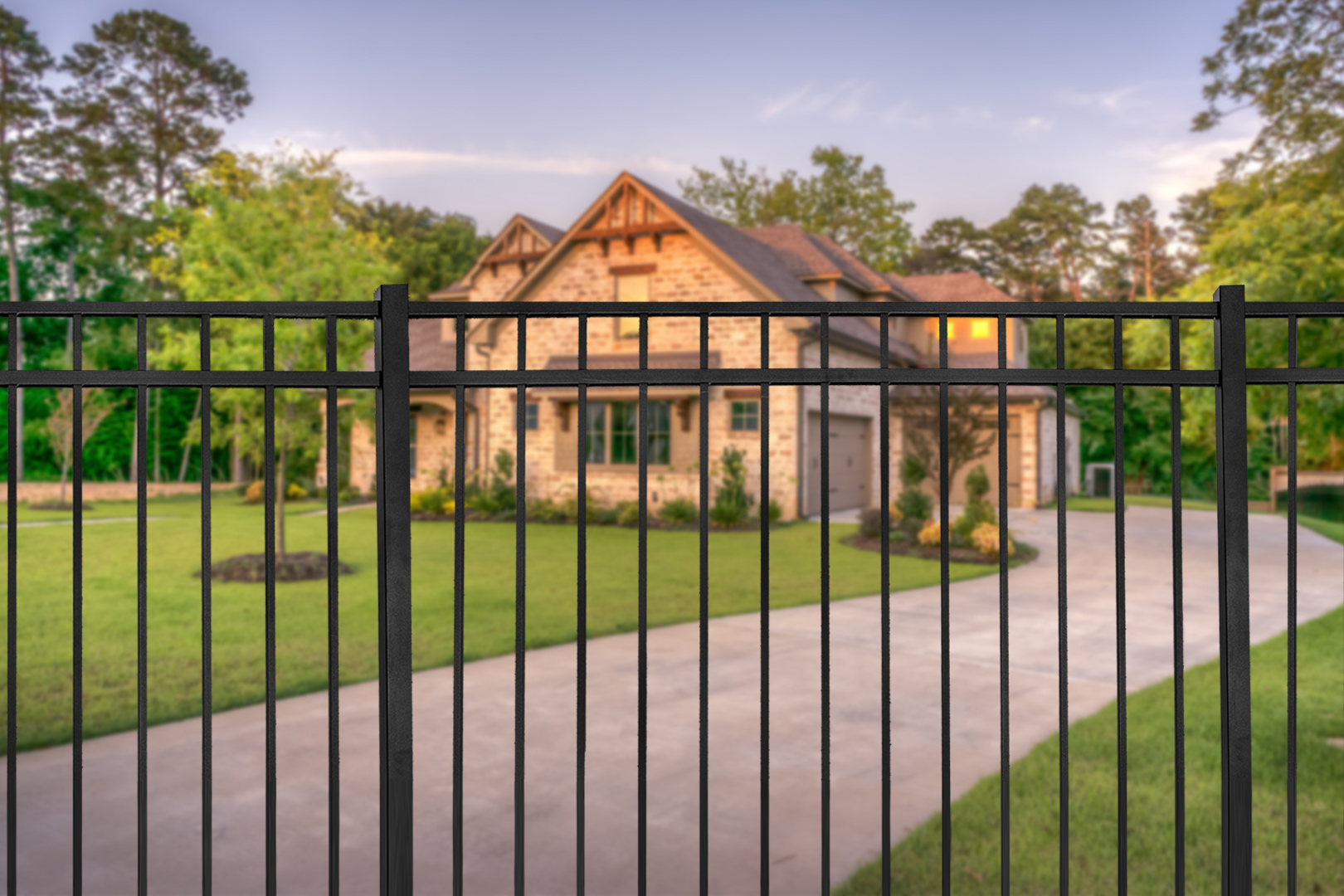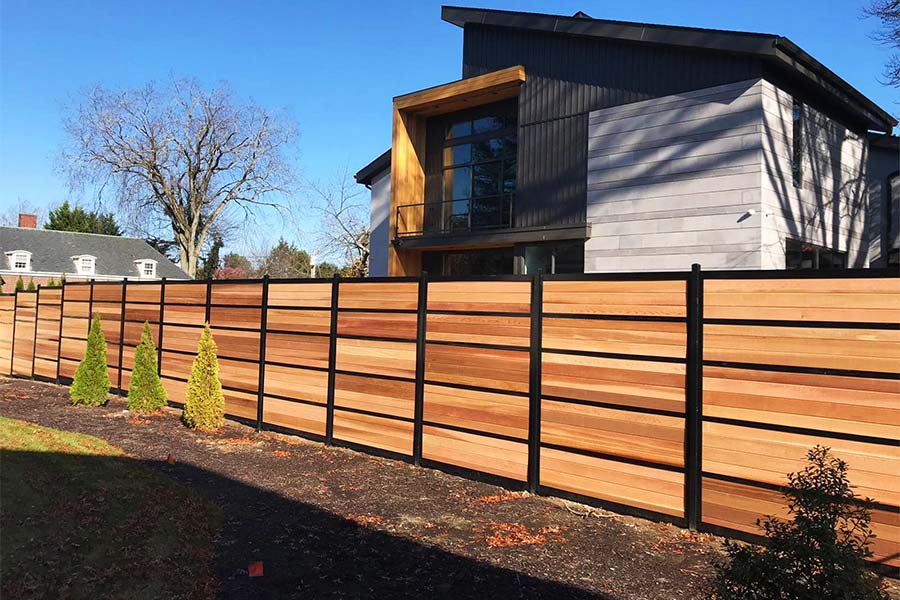All Categories
Featured
Installing a fence on your residential property can add privacy, safety, and aesthetic allure, yet prior to you start digging openings and setting messages, it's essential to comprehend whether you need a license. Not obtaining the necessary authorizations might result in penalties or the requirement to remove the fence.
Why Are Allows Needed for Fence Setup? Authorizations are very important for guaranteeing that your fencing abides by local zoning legislations and building ordinance. These laws assist make certain the security of your home and the bordering area. In addition, permits prevent disagreements with neighbors or local authorities, especially when it involves residential or commercial property lines, elevation restrictions, and general style.
Oftentimes, neighborhood authorities require authorizations to regulate points like exposure at crossways or the proximity of a fence to public areas like walkways or roads. Authorizations also assist make sure that fences are set up properly and safely, specifically when it concerns high fencings or special products.
Typical Sorts Of Permits for Fence Installation. The sort of fencing you want to set up and your location will certainly determine which licenses are needed. Below are one of the most typical types:
Structure Permit. A building license is typically needed for fencings that go beyond specific elevation restrictions (frequently over 6 feet), are located near a public roadway or pathway, or are made from details materials. Structure allows make sure that the framework satisfies regional building regulations, including security standards.
Zoning License. Zoning permits are typically needed to make certain that your fencing adheres to local zoning regulations. Zoning legislations can define where a fencing can be positioned on your residential or commercial property (e.g., along residential property lines or in front yards), as well as set limits on fence elevation. These legislations are developed to protect against obstructions that can affect website traffic security or neighborhood appearances.
![]()
Trouble Authorization. In some locations, you may need a trouble permit to put your fencing a specific range from home energies, lines, or roadways. Problems are planned to preserve correct room between structures and residential or commercial property boundaries, minimizing potential conflicts with neighbors or public infrastructure.
Homeowners Organization (HOA) Approval. If your property is component of a community regulated by a Homeowners Association (HOA), you will likely need authorization from the HOA before setting up a fencing. HOA guidelines commonly control the style, height, products, and also shade of fencings, ensuring that they match the overall aesthetic of the community.
The Refine for Acquiring a Fencing Authorization. To get a fencing license, you normally need to contact your regional city or area workplace. Most areas have a building division or planning office where you can use for permits. The procedure involves completing an application and providing in-depth details about your recommended fencing, including:
Fence style (products, height, design) Location on the building. Residential or commercial property line details (for precise positioning) In many situations, a website plan revealing the suggested fence's placement will be needed. You might likewise need to pay a license fee, which can vary based upon area and the complexity of the task.
When you submit your application, the neighborhood authorities will review it to ensure the fencing abides by regional regulations. Depending on your location, you may also require to permit or set up an evaluation for a property study.
When Do You Not Need a Permit? In some cases, a permit might not be required. Generally, you might not need a permit if:
![]()
The fencing is under a particular height (frequently 3-4 feet for front yards) You're replacing an existing fence with the very same type and elevation. The fence is short-lived (such as a yard fence) It's constantly a good idea to examine with your local building or zoning department to validate the demands, as regulations can vary.
Repercussions of Not Getting an Authorization. In some cases, you might require to re-install the fence according to code, which might be pricey and lengthy. Furthermore, not complying with the appropriate allowing procedure can produce problems with neighbors, specifically if your fence prolongs beyond your residential or commercial property line or doesn't fulfill height or style requirements.
Final thought. Before mounting a fence, make sure you're aware of the neighborhood policies and whether you need an authorization. By getting the appropriate authorizations, you'll guarantee that your fencing is lawfully certified, risk-free, and free from future issues.
Why Are Allows Needed for Fence Setup? Authorizations are very important for guaranteeing that your fencing abides by local zoning legislations and building ordinance. These laws assist make certain the security of your home and the bordering area. In addition, permits prevent disagreements with neighbors or local authorities, especially when it involves residential or commercial property lines, elevation restrictions, and general style.
Oftentimes, neighborhood authorities require authorizations to regulate points like exposure at crossways or the proximity of a fence to public areas like walkways or roads. Authorizations also assist make sure that fences are set up properly and safely, specifically when it concerns high fencings or special products.
Typical Sorts Of Permits for Fence Installation. The sort of fencing you want to set up and your location will certainly determine which licenses are needed. Below are one of the most typical types:
Structure Permit. A building license is typically needed for fencings that go beyond specific elevation restrictions (frequently over 6 feet), are located near a public roadway or pathway, or are made from details materials. Structure allows make sure that the framework satisfies regional building regulations, including security standards.
Zoning License. Zoning permits are typically needed to make certain that your fencing adheres to local zoning regulations. Zoning legislations can define where a fencing can be positioned on your residential or commercial property (e.g., along residential property lines or in front yards), as well as set limits on fence elevation. These legislations are developed to protect against obstructions that can affect website traffic security or neighborhood appearances.

Trouble Authorization. In some locations, you may need a trouble permit to put your fencing a specific range from home energies, lines, or roadways. Problems are planned to preserve correct room between structures and residential or commercial property boundaries, minimizing potential conflicts with neighbors or public infrastructure.
Homeowners Organization (HOA) Approval. If your property is component of a community regulated by a Homeowners Association (HOA), you will likely need authorization from the HOA before setting up a fencing. HOA guidelines commonly control the style, height, products, and also shade of fencings, ensuring that they match the overall aesthetic of the community.
The Refine for Acquiring a Fencing Authorization. To get a fencing license, you normally need to contact your regional city or area workplace. Most areas have a building division or planning office where you can use for permits. The procedure involves completing an application and providing in-depth details about your recommended fencing, including:
Fence style (products, height, design) Location on the building. Residential or commercial property line details (for precise positioning) In many situations, a website plan revealing the suggested fence's placement will be needed. You might likewise need to pay a license fee, which can vary based upon area and the complexity of the task.
When you submit your application, the neighborhood authorities will review it to ensure the fencing abides by regional regulations. Depending on your location, you may also require to permit or set up an evaluation for a property study.
When Do You Not Need a Permit? In some cases, a permit might not be required. Generally, you might not need a permit if:

The fencing is under a particular height (frequently 3-4 feet for front yards) You're replacing an existing fence with the very same type and elevation. The fence is short-lived (such as a yard fence) It's constantly a good idea to examine with your local building or zoning department to validate the demands, as regulations can vary.
Repercussions of Not Getting an Authorization. In some cases, you might require to re-install the fence according to code, which might be pricey and lengthy. Furthermore, not complying with the appropriate allowing procedure can produce problems with neighbors, specifically if your fence prolongs beyond your residential or commercial property line or doesn't fulfill height or style requirements.
Final thought. Before mounting a fence, make sure you're aware of the neighborhood policies and whether you need an authorization. By getting the appropriate authorizations, you'll guarantee that your fencing is lawfully certified, risk-free, and free from future issues.
Latest Posts
Cold Stone Creamery: A Delicious Highlight at FunCity Hotel
Published Apr 20, 25
2 min read
Developed on Top Quality, Driven by Service
Published Apr 19, 25
1 min read
Montclare Auto Repair: Your Trusted Auto Service Provider in Montclare
Published Apr 18, 25
2 min read